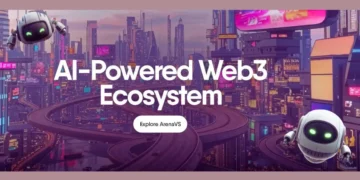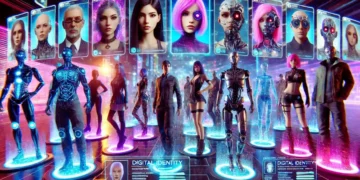Anthropic has taken a significant leap forward in the AI landscape with the official release of its Tool Use capability for its Claude assistant. This tool, previously in beta, promises to revolutionize the way businesses can automate tasks, personalize recommendations, and analyze data by integrating with external data sources and APIs.
What is Tool Use for Claude?
Tool Use empowers Claude to interact autonomously with external tools. Imagine asking Claude, “What’s the weather in New York?”. Claude would not only interpret the question but also generate an API call to a weather app, retrieve the necessary data, and provide you with a natural language response.
Tool use is now generally available.
With tool use, Claude can, if instructed, intelligently select and orchestrate tools to solve complex tasks end-to-end.
Start building today with our API, Amazon Bedrock, or Google Vertex AI: https://t.co/DHcQ6LYQGp https://t.co/pqVIP06kHi
— Anthropic (@AnthropicAI) May 30, 2024
How it Works
The key to Tool Use is Claude’s ability to interpret instructions and choose the right tool. Developers define a set of tools for Claude using JSON or Python, enabling it to select the most appropriate one based on the request. For instance, if a specific argument is missing, Claude can ask for more information before proceeding.
Claude Models
As I mentioned in previous updates, Anthropic has developed different versions of Claude to cater to diverse needs:
Opus: Handles multiple tools simultaneously and requests clarification when arguments are missing. Ideal for complex tasks where accuracy is crucial.
Haiku: Utilizes tools more frequently and can infer missing parameters, making it suitable for more general tasks.
Our most intelligent model, Claude 3 Opus, is now generally available on Vertex AI. https://t.co/kXdjp6rW69
— Anthropic (@AnthropicAI) May 31, 2024
Real-World Applications
Education
Platforms like StudyFetch are already leveraging Tool Use to help students navigate course materials. Claude’s ability to interact with databases and learning management systems facilitates a more personalized educational experience.
Finance
In the financial sector, Hebbia is using this technology to extract metadata from lengthy documents and automate complex workflows. This saves time and reduces errors, enhancing operational efficiency.
Enterprises
Companies across various industries are adopting this technology to improve efficiency and offer personalized recommendations to their customers. Intuned, for example, utilizes Tool Use to automate data entry and analyze complex information.
Security and Privacy
Anthropic has placed a strong emphasis on security. Each Claude model undergoes rigorous testing to safeguard it against vulnerabilities and attacks. Advanced security techniques enable real-time detection and resolution of issues, ensuring data protection and user privacy.
Developer Implementation
Tool Use is designed to be intuitive and flexible. Even developers with limited AI experience can leverage this tool. The concept is simple: define a set of tools and communicate your goals in natural language. This makes API integration accessible to everyone.
The Future of Automation
With Tool Use, Claude goes beyond performing repetitive tasks, enabling humans to focus on strategic and creative activities. Anthropic firmly believes that AI should augment human capabilities, not replace them, promoting effective collaboration between humans and machines.
Business Benefits
The general availability of Tool Use positions Anthropic at the forefront of enterprise AI. Companies adopting this technology can significantly enhance their operations, offering a new level of efficiency and capabilities.
When adopting this technology, it is crucial for businesses to maintain rigorous ethics to ensure that the benefits of AI extend to both the business and its employees.
For more details, visit docs.anthropic.com
Conclusion
Anthropic’s Tool Use for Claude represents a significant advancement in the field of AI assistants. By enabling Claude to interact seamlessly with external tools and data sources, this technology opens up a vast array of possibilities for automation, personalization, and data analysis. As businesses embrace this innovation, we can expect to see enhanced efficiency, improved customer experiences, and a more productive future of work.
FAQs
1. What are the potential applications of Tool Use for Claude?
Tool Use can be applied across various industries, including education, finance, and enterprise. It can automate tasks, personalize recommendations, analyze data, and much more.
2. How does Tool Use differ from traditional API integration methods?
Tool Use offers a more intuitive and user-friendly approach to API integration. Developers can define tools and communicate goals in natural language, making it accessible even for those with limited AI experience.
3. What are the security and privacy considerations for using Tool Use?
Anthropic prioritizes security and privacy. Each Claude model undergoes rigorous testing, and advanced security techniques ensure data protection and user privacy.
4. How can businesses get started with Tool Use?
Developers can refer to the documentation on docs.anthropic.com to learn more about defining tools and integrating them with Claude.
5. What are the ethical implications of using AI tools like Tool Use?
It’s crucial for businesses to adopt ethical practices when using AI. This ensures that the benefits of AI extend to both the business and its employees, promoting responsible and transparent use of this powerful technology.
Follow us on our social networks and keep up to date with everything that happens in the Metaverse!
Twitter Linkedin Facebook Telegram Instagram Google News Amazon Store












































